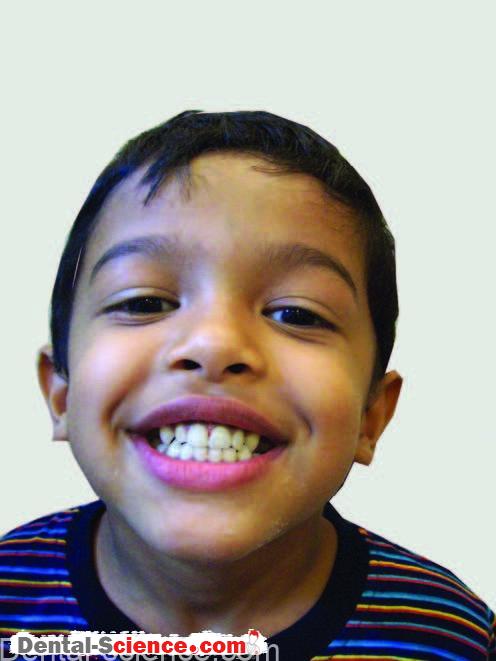At the Beginning….
– Pediatric dentistry is an age-specific specialty that deals with the dental care needs of
children.
– It is probably the only specialization in dentistry that is age defined and not specific to any treatment modality.
– Unlike restorative dentistry, endodontics, periodontology, oral and maxillofacial surgery,
orthodontics, etc., pediatric dentistry encompasses a variety of procedures, at times
touching these other fields of dentistry, too.
– The main job of a dentist dealing with children is to identify the treatment need and devise
a suitable treatment plan keeping in mind the child’s age.
– The treatment to be delivered to the child must be acceptable to the child.
– Therefore, the dentist must possess child management skills to be in a position to do the needful.
– All pediatric dentists even today do not practice dentistry exclusively for children.
– But a few who do, believe that they have the necessary knowledge, skill of and love for the subject they had been taught.
– Many general dentists are willing to practice dentistry for children but encounter difficulties due to lack of practical training on key areas in ‘child management’ in dentistry.
– If all pediatric dentists ‘believe’ in the art and science of ‘child management’ in dentistry, most dental surgeons would ‘believe’ in the same.
– This would also create belief (trust) in the people’s minds that children can be and have to be dealt with a different approach for their early dental care.
– The practice of dentistry for children would then be accepted better by people and
respected more in the society.
Some Considerations
– A dental surgeon willing to practice dentistry for children must understand following
considerations of child management in dentistry:
1. To desire, decide and learn the practice of dentistry for children is a great step in terms of patient care in dentistry.
2. The dentist willing to practice dentistry for children should possess good skills of general dentistry including restorative procedures, extractions, endodontic treatment and above all diagnosis and treatment planning.
3. He/she must have dealt with children to an extent during his graduation or during initial years of association with senior practitioners to understand what difficulties can be
encountered while dealing with children.
4. To learn the art and science of child management in dentistry, he/she must either observe the work of a pediatric dentist or a dentist with reasonable skills of practicing dentistry for children.
5. The most difficult hurdle to overcome while beginning to practice dentistry for children is ‘to believe’ that child management principles work! Those who do, accept that like most sciences, in spite of limitations, ‘child management’ can be practiced with certain
predictability.
6. The dental surgeon must develop a team that he/she heads, for practicing dentistry for
children. The team must continuously acquire knowledge and learn from experience while dealing with children. It is also important to decide policies in practice pertaining to specific child management techniques or aspects (for example: whether parent/s should be present in the operatory during the dental treatment of a child; whether a technique
such as Hand-Over-Mouth is to be used).
7. Most children beyond a certain age are potentially cooperative for most dental procedures. They cannot be just classified as ‘cooperative’ or ‘uncooperative’.
8. The ‘child management methods’ apply to all children- cooperative as well as initially
uncooperative. It is therefore mandatory to learn them for successful management of most children.
9. Children account for approximately one-third of the population; thus the onus of practicing dentistry for children remains on general dental surgeons practicing dentistry for children.
10. Practicing dentistry for children is a rewarding, satisfying and challenging profession.
11. Children are not small adults. They behave and relate to surroundings differently. They have their preferences, likes and dislikes. A dentist for children has to have an insight into their demands.
12. There are certain rules/ABCs of any dental practice; for example: achievement of adequate anesthesia is a rule prior to an extraction; a correct instrumentation technique, working length determination, use of proper irrigation, etc. are the ABCs of endodontic success.
The success story of practicing dentistry for children begins with good child management.
13. It is important to have patience and sustained interest for success in practice of dentistry for children.
The frequently encountered but not commonly asked questions
regarding ‘Child Managment in Dentistry’
What is ‘Child Management in Dentistry’?
– ‘Child management in dentistry’ means:
• Guiding children through their dental experiences
• Instilling in children a positive attitude towards dentistry
• Controlling and modifying child behavior effectively while carrying out treatments for the children in an efficient and comfortable manner.
Is ‘Child Management in Dentistry’ same as ‘Behavior Management
of Children in Relation to Dental Care’?
– Child management in dentistry is a broader concept than the behavior management.
– Behavior management is one aspect of child management.
– The other aspects such as practice management, designing a child friendly dental clinic and
a system of functioning (with related aspects such as time management), etc. are included in the concept of ‘child management’.
– Child management in dentistry is a skill to be acquired by a clinical practitioner of dentistry.
– It is both an art and science.
Can only ‘Pediatric Dentists’ Learn and Practice ‘Child Management in Dentistry’?
– Children account for about one third of a population. There will always remain a scarcity of pediatric dentists catering to such a large population.
– Although pediatric dentists are trained in child management as a part of their curriculum, dentists with a keen interest and thorough efforts can train themselves in this area.
– In India, the onus of child management in dentistry lies with dentists practicing general
dentistry.
Are Children ‘Difficult’ to Manage?
– Children are not small adults! Dentistry for children is not ‘difficult but is a bit different’ from what is practiced for adults!
Why ‘Child Management in Dentistry’?
– It opens doors to a new field in dentistry that has not been ventured by many a general
dentist till date.
– In the era of competitive dentistry and struggle, acquisition of knowledge of child
management in dentistry can prove a value addition to the services offered by a clinical practitioner of dentistry.
– Children are ‘keys to future’ and are the best practice builders!
How to Learn Child Management in Dentistry?
• Observe children
• Interact with children
• Read books on behavior management, child psychology, practical methods to deal with
children
• Share clinical experiences with people practicing child management in dentistry, observe
clinical work of pediatric dentists/ dentists adept in child management
• Learn continuously from children while working with them
• Be positive in approach: believe it works!
ــــــــــــــــــــ► ⒹⒺⓃⓉⒶⓁ–ⓈⒸⒾⒺⓝⓒⒺ ◄ــــــــــــــــــــ






